'Playing with Clusters' is a collaborative activity designed to engage players in conversation. It helps participants discuss unexpected connections for economic growth and prosperity in Ontario. It also familiarizes players with economic cluster terminology. 'Playing with Clusters' works in tandem with the publication 'A Little Book of Clusters'. It demonstrates the value of collaboration through the experience of shared ideation and collective action.
Launch: 21st TCI Network Global Conference (October 2018)
Client: Institute for Competitiveness & Prosperity (ICP)
Services: user research | design research | product design | service design

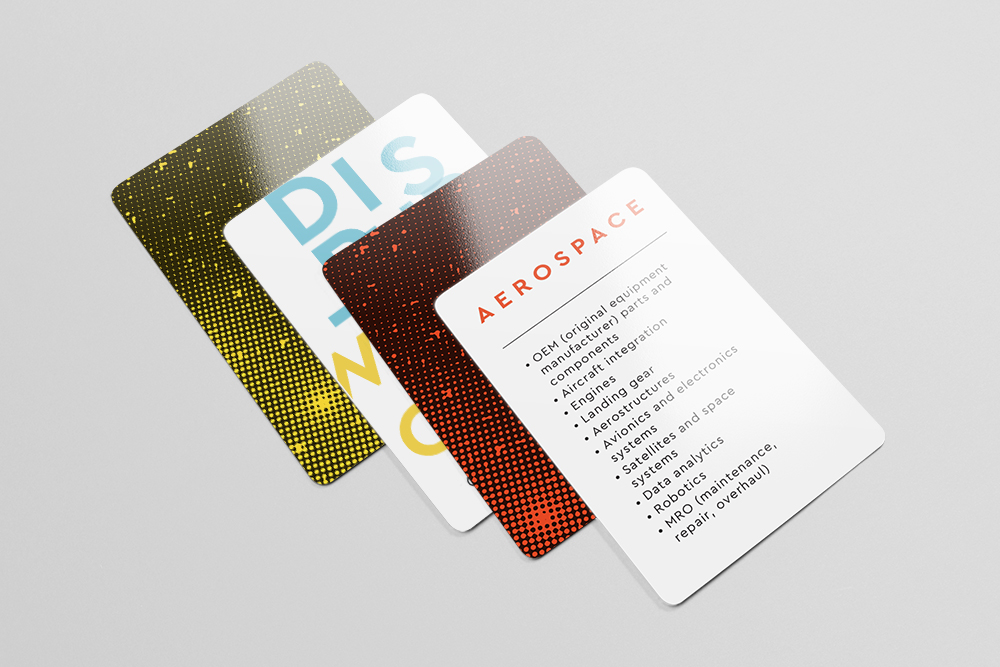
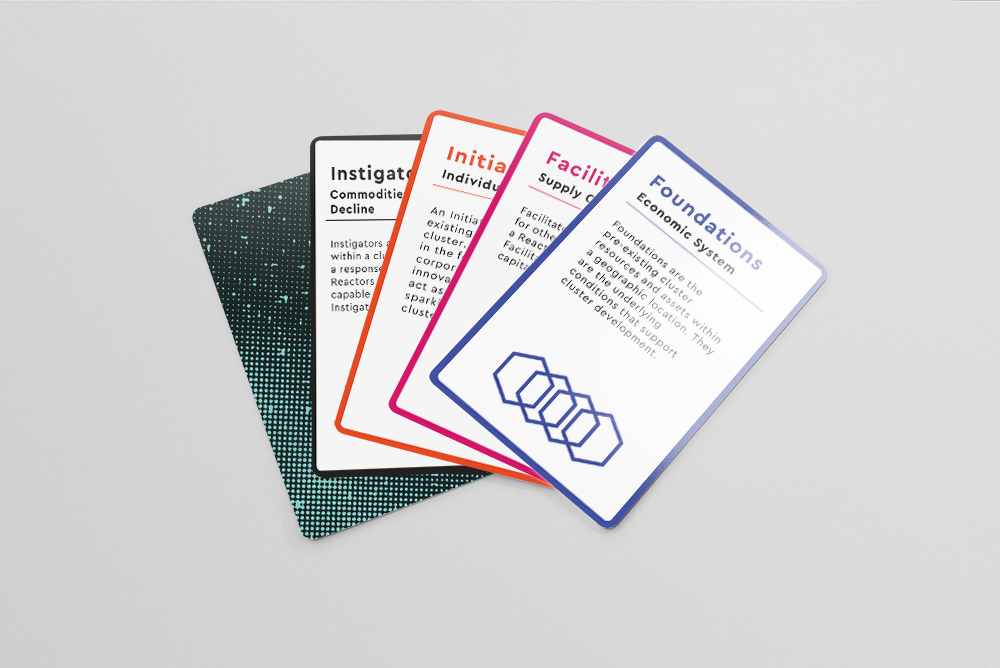
Context
Planning at the regional scale is critical. As our economic, land use and transportation patterns have evolved over the last century, metropolitan areas have become increasingly important. The Toronto region is comprised of municipalities that often compete with one another for economic opportunities. There is little to no communication across municipal boundaries which results in a fragmented approach to addressing regional issues.

IDEATION & PLANNING
The project began with concept ideation sessions, affinity mapping and collaborative sketching. Preliminary research goals were created along with a set of unvalidated assumptions about the users.
'HOW MIGHT WE' QUESTION
How might we gamify collaborative ideation between government officials, business leaders and academics?
RESEARCH QUESTIONS
1. What factors affect regional policy and planning within the context of the Toronto region?
2. What techniques are most effective for fostering collaboration?
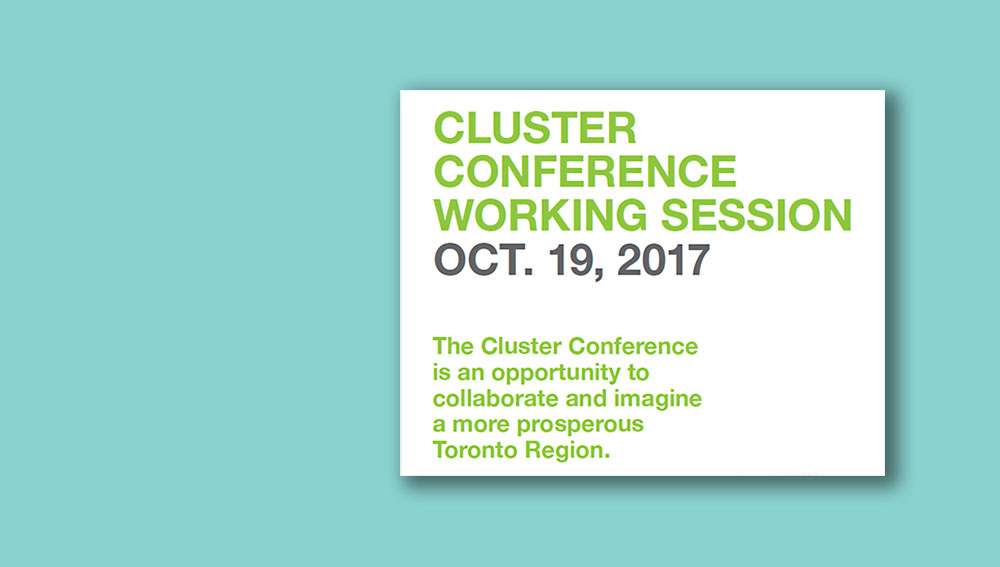
RESEARCH METHODS
1. Conference Workshop
Research for this project included a co-creation session with members of the client's target audience. The 'Cluster Conference', hosted by the Institute for Competitiveness and Prosperity (ICP) brought together thought leaders, stakeholders and government officials invested in creating a more prosperous Toronto region. This was a great occasion to engage with stakeholdrs and identify areas of opportunity.
As a component of the conference, the Institute without Boundaries (IwB) hosted a collaborative working session to engage participants in identifying emerging clusters, initiatives to support the growth of these clusters and imagine the steps needed to scale, support and communicate these clusters within the Toronto region. Participants were guided through brainstorming and working sessions using the IwB design sprint methodology to generate collaborative ideation. Results were tabulated and informed subsequent research efforts.
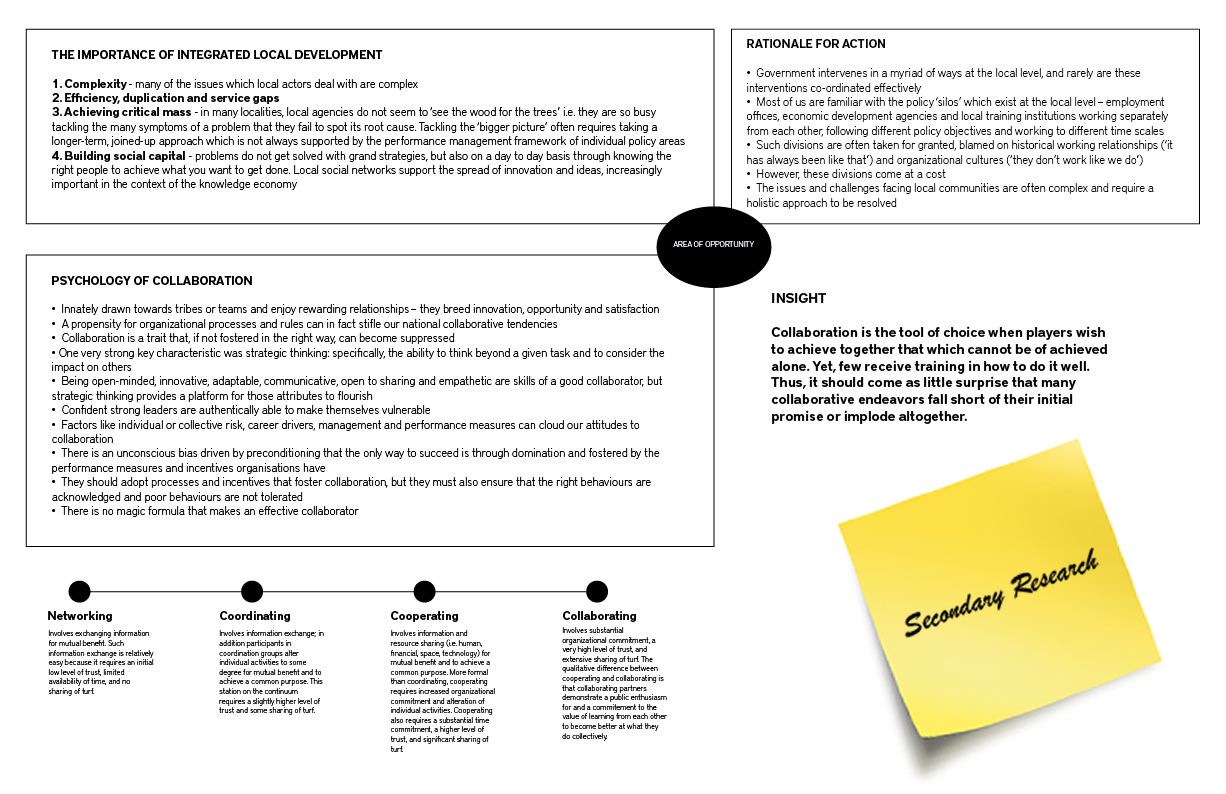
2. Secondary Research
After finalizing the insights from the conference working session, secondary research was conducted to explore the following topics: economic cluster theory, importance of local integration for policy development, psychology of collaboration and the gamification of user experience. This was necessary to validate the observations and assumptions gathered thus far.
KEY FINDINGS
1. Collaboration is the tool of choice for users to achieve something they cannot do alone.
2. There is no scientific assesssment for 'fun' as part of a user experience.
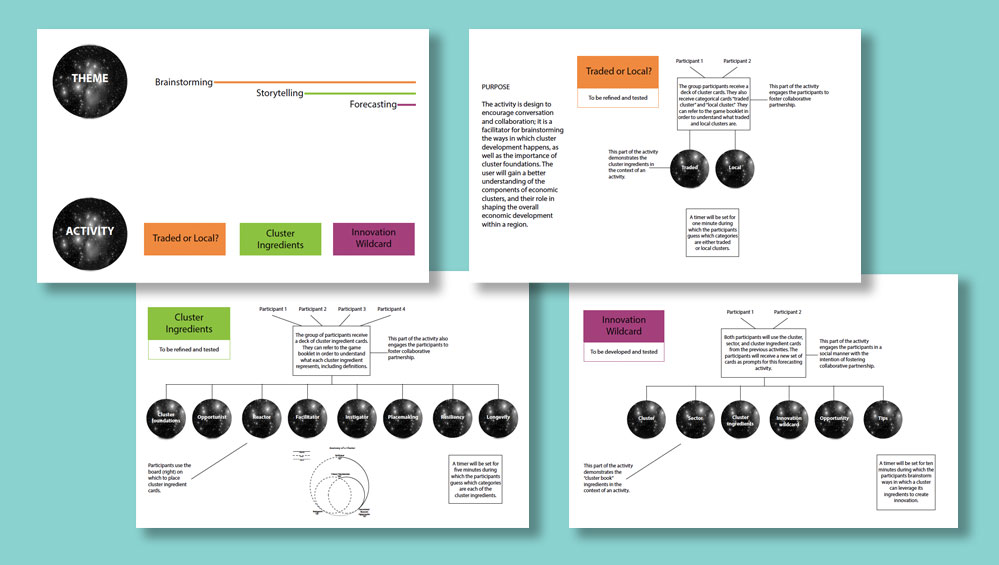
PROTOTYPING & TESTING
Low fidelity prototypes were created and tested on users. The usability sessions focused on pre-defined tasks - to follow prompts and get to the end of the game. Users were encouraged to 'think aloud' and verbalize what they were doing, thinking and feeling throughout the game. Post-task surveys were distributed and the findings were used to further refine the prototype.
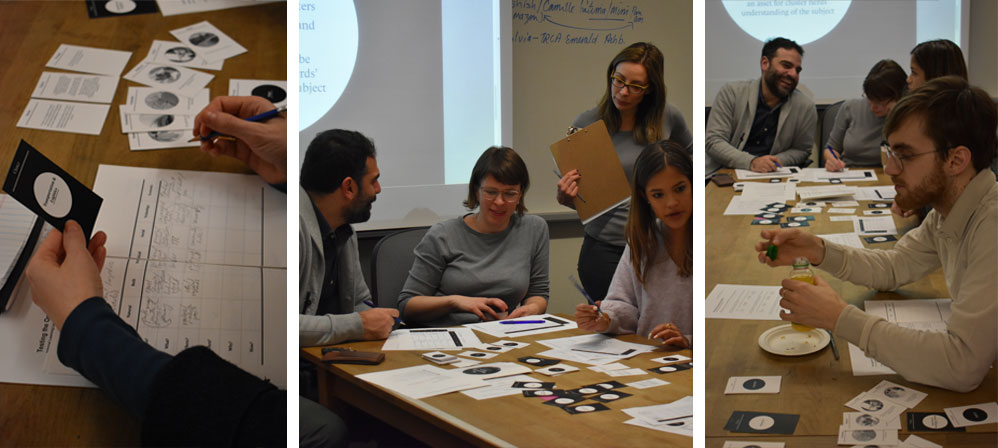
Outcome
The object of the game is to complete an economic cluster using the ingredient cards and collaboratively discuss a cluster scenario based on the information provided. There are three types of cards: ingredient, sector and wildcard disruptor. The card combination selected at random creates a scenario for the participants to contextualize a story about a potential economic cluster.
Through this activity, participants gain a common language about economic clusters, thereby making a complex subject more accessible. It also allows the target users to start conversations about economic clusters under the auspices of collaborative game play.
